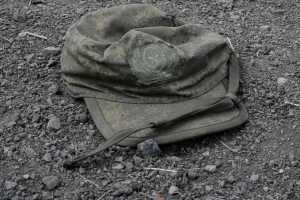
Russian schools teach children trench-digging, grenade-throwing, and shooting
Schools across Russia are glorifying service in the armed forces, creating "volunteer companies" of teenagers, and revising the curriculum, which indicates that children are still being trained for war
CNN reported the information.
Russian kindergartens are encouraging preschool children to wear military uniforms and participate in marches, and teenagers are being taught to dig trenches, throw grenades, and shoot real bullets.
All of these indications suggest a rising trend in the militarization of public schools. This trend has become more pronounced since the start of Russia's full-scale invasion of Ukraine. This shift is not the result of spontaneous patriotic sentiment but rather stems from directives issued by the Russian government.
Russian Education Minister Sergei Kravtsov said that there are currently about 10,000 "military-patriotic" clubs in Russian schools and universities, involving a quarter of a million people, and that they are part of a multilateral effort that includes a radical revision of the school curriculum, compulsory classes on military-patriotic values, and updating historical books that focus on the Russian army.
Changes to textbooks
In August, Russian leader Vladimir Putin approved a law introducing a new mandatory course in schools called "Fundamentals of Security and Defense of the Motherland." This law also led to the creation of an additional program by the Russian Ministry of Education. This program includes visits to military units, military sports activities, interactions with military personnel and veterans, drone training, and instruction by military officers and trainers on the proper use of live ammunition, which will be limited to designated firing ranges. Scheduled for implementation in 2024, the program aims to instill an "an understanding and acceptance of the aesthetics of military uniforms, military rituals and combat traditions," as per Russian media.
Textbooks on modern history are also being changed, for example, the History of Russia textbook now has the Crimean Bridge on the cover and a new section on the recent history of Ukraine, which includes sections on “Falsification of history,” “Revival of Nazism,” “Ukrainian neo-Nazism,” and “Russia is a country of heroes.”
The textbook presents the narrative that Ukraine “openly declared its desire to acquire nuclear weapons,” and “unprecedented sanctions have been introduced against Russia, since the West is trying in every way to bring down the Russian economy.”
Thus, the book is an element of propaganda and evokes a sense of historical resentment among Russian children, creating an image of a struggle for the nation's survival. Putin has personally led a campaign to foster patriotism in Russian schools.
Children are taught to use weapons
A CNN survey in Russia found that children as young as seven or eight years old are receiving basic military training. In Belgorod, children were given call signs and took a course on how to use automatic weapons, assemble a machine gun, and overcome an obstacle course.
In May of this year, in Krasnodar, elementary school children marched in army uniforms and imitated holding automatic weapons, and at a parade in Vologda, a girl saluted and said to an official: "Сomrade parade commander! The parade is ready. I am Commander Uliana Shumelova." Such events take place throughout Russia.
At such events, Russia celebrates the symbolism of what it calls the "Special Military Operation" in Ukraine. For example, in Astrakhan, children dressed in uniforms had toy military vehicles decorated with the letter Z, which is used to demonstrate support for the war against Ukraine.
Children are being prepared for military service
Russian authorities are forcing children to make a practical contribution to the war effort. The ruling United Russia party launched a program in Vladivostok where schoolchildren sew pants and caps for soldiers based on the party's model, and in Vladimir, children sewed balaclavas for the military during labor lessons as part of the "We sew for our men" campaign.
College students are tasked with making mobile stoves and trench candles for the Russian military, in Ussuriysk they are encouraged to sew "friend or foe" headbands for the Northern Military District, and in Buryatia in the Far East, orphans sewed "good luck" amulets and wrote letters for soldiers fighting in Ukraine. All of these events are being publicized as part of an effort to rally the patriotic spirit.
Military sports games
The district finals in the Orenburg region recently concluded, where 180 athletes, including those from the illegally annexed regions of Ukraine, took part in grenade throwing, drill, obstacle course and Kalashnikov assembling competitions, as well as in a military history quiz.
The Defense Ministry describes the goal as "cultivate a sense of mutual assistance and comradely support, high moral and psychological qualities, as well as prepare the younger generation for service in the Armed Forces Russian Federation."
Soldiers who fought in the war in Ukraine also visit schools. In Buryatia, children told of a visit by a wounded soldier who claimed to have fought with Polish mercenaries in Ukraine and said that Ukrainians themselves "do not want to fight and are being forced to."
Teachers who were skeptical of the changes were fired, and, for example, a school principal in Perm resigned after being criticized by pro-war activists because she did not want to teach classes about the "Special Military Operation". Some parents are opposed, but the majority, according to the survey, support the military-patriotic campaign. The propagandistic RIA Novosti news agency reported that according to the survey, 79% of parents support showing war videos to their children.
New history textbooks were shown in Moscow, in which chapters from the 1970s were completely rewritten and a new one about the war in Ukraine, which is called a "special military operation," was added.
- News














































